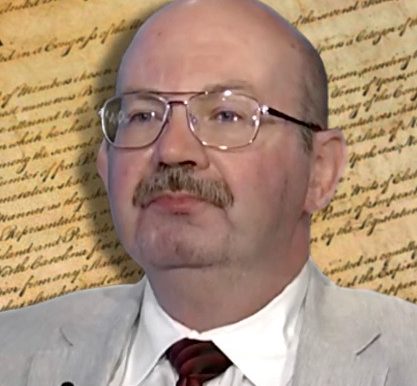In 1982, Gregory Watson, a sophomore at the University of Texas, Austin, wrote a paper for his Government 310L course on an unratified amendment to the U.S. Constitution. Written in 1789, the amendment would have banned Congress from getting a pay raise they voted for until after the next election. The idea was that voters might react at the ballot box to such a pay hike.

Watson got a "C" on the paper, which argued that the amendment had no deadline and could still be ratified. Today, Watson can proudly proclaim his grade has been upgraded to an "A." That's because Watson was right and pretty much single-handedly made the 27th Amendment a part of the Constitution.
"My paper was typed and turned in. I then received it back from the teaching assistant – not the professor – with a "C" on it. I appealed the grade up to the professor. She assured me that she would take a look at it to see if my paper warranted a higher grade. A few days later she physically hurled it at me and said 'no change',” remembered Watson. "I was angered and decided — right then and there — that I would secure its incorporation in the United States Constitution."
RELATED: Equal Rights Amendment lies in legal limbo, as decades of debate continue
RELATED: The Constitution’s ignored stepchild: the Third Amendment
In his research, Watson had discovered a 1939 U.S. Supreme Court ruling that said if Congress offers a proposed federal constitutional amendment with no deadline, then state legislatures are free to keep considering and casting votes on the amendment.
"My point was to demonstrate that the 1789 measure was — beyond doubt — technically still pending before America's state lawmakers and that its prohibition relative to immediate, or even retroactive, salary adjustments for members of Congress remained very much in need, even during the 1980s, to keep Congress honest, at least in that one particular regard," Watson said.
After Congressional approval, nine states had ratified the Congressional Compensation Amendment of 1789. Then the ratification process just stalled. Since the approval of 38 states is needed for ratification today, Watson had to get 29 more to ratify.
Keep in mind, the last constitutional amendment to be ratified was the 26th, which gave 18-year-olds the right to vote in 1971. The 1972 Equal Rights Amendment had stalled out and missed its deadline after Indiana's approval in 1977. In other words, state legislatures were not exactly tuned in to ratifying constitutional amendments in 1982 — especially not amendments proposed nearly 200 years earlier.
But, the greediness of Congress in 1981 might have given Watson an assist. It had buried a tax break just for its members in a relief bill for coal miners suffering from Black Lung disease. Watson got in touch with members of Congress who were trying to repeal that tax break and clued them in on the still-viable Congressional Compensation Amendment. He asked for names of legislators in their state capitals who might be interested in introducing the amendment for ratification. He struck pay dirt in Maine, where state Senator Melvin Shute got a ratifying resolution through both the statehouse and senate in 1983.
But, you can't say Watson's ratification plan was off-and-running. It wouldn't be until 1992 that the required 38 states had ratified the Congressional Compensation Amendment, making it the 27th Amendment to the Constitution. All because one citizen persevered.
"I would not describe it as a difficult process but, rather, a labor-intensive process,' Watson said. "It involved a great deal of preparing hard-copy correspondence addressed to states which had not ratified the Congressional Compensation Amendment of 1789. It was rather a costly project from which I, myself, never made a penny."
Watson didn't stop with the 27th Amendment. He also worked to get the 13th Amendment, abolishing slavery, retroactively approved by the Mississippi state legislature.
"The 13th Amendment was a perfect example of dotting an "I" and crossing a "t" that had been left un-dotted and un-crossed for some 130 years," Watson said.
Watson said his experience has led him to believe that the whole constitutional amendment process needs to change.
"The manner in which the U.S. Constitution is amended is in dire need of modernization. The voters should have a direct role to play somewhere in the process," he said. "At the state level, 49 of 50 state constitutions include statewide referenda as the means of approving amendments to state constitutions. If the concept of approval by popular referendum is good enough for 49 of the 50 states, then is it likewise good enough at the national level and should be used for future amendments to the U.S. Constitution. This way, decisions can be made in just one day rather than dragging things out over several years, decades and even centuries. I have formally presented this concept to Congress and my petitions have been duly noted in the Congressional Record."
Watson says he believes our system of government is seriously dysfunctional, as evidenced by his battle to get the Congressional Compensation Amendment ratified 200 years after Congress approved it. However, he says his experience did reinforce the power of the individual citizen to get things done.
"The biggest takeaway is that if people get very involved with their government — even today in 2020, and make elected offices strongly aware of their concerns — average citizens can have a major impact," Watson said. "But they must devote themselves to being very loud and very persistent. Politicians only respond when they fear the wrath of the electorate."
Of course, Watson had one other takeaway from his campaign to ratify the 27th Amendment. A better grade.
"Some 35 years belatedly, my overall grade of "C" in the 1982 Government 310L course was raised to an "A"," Watson said. "In 2016-2017, University of Texas at Austin Professor Zachary Elkins urged my now-retired 1982 professor to file official paperwork with the university's registrar elevating my overall grade in her 1982 course. In 2017, she did precisely that and now I am recorded receiving an "A" in the course."














